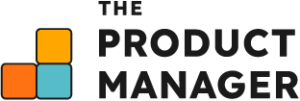Currently, only about 1 in 4 employees in the tech industry identifies as a woman. So what does it take to create a successful career as a woman in tech? In this interview series called Women in Tech, we spoke to successful leaders in the tech industry to share stories and insights about what they did to lead flourishing careers. We also discuss the steps needed to create a great tech product. As part of this series, I had the pleasure of interviewing Liat Hayun.
Liat Hayun is the CEO and Co-Founder of Eureka Security, a Data Security Posture Management (DSPM) platform that enables companies storing sensitive data in clouds such as AWS, Azure, GCP, and Snowflake, to understand where data is, the type of data it is, learn who and what can access it, and keep it secure. Prior to co-founding Eureka Security, Liat spent a decade leading cybersecurity efforts in the Israeli Defense Forces Cyber Command and Palo Alto Networks. Passionate about ensuring a safer, more streamlined business environment, she is driven to identify meaningful operational security gaps and develop exciting new technologies and strategies to help fellow security leaders tackle them.
Thank you so much for joining us in this interview series! Before diving in, our readers would love to learn more about you. Can you tell us the story about what brought you to this specific career path?
I was curious about how things worked from a very young age. When I was seven years old, my father returned from a business trip with a talking Barbie doll as a gift. While other girls my age would have been excited to play with the doll, I was mainly curious about how a doll was able to speak. Luckily for me, unlike other parents, my father took out a small screwdriver and showed me the mechanism that made it work. Curious even then, I immediately wanted to find a way to make the doll say something else!
This probably tells you everything you need to know about my passion for understanding how things work and the environment I grew up in which fostered and encouraged my curiosity and innate abilities, ultimately inspiring my decision to be an entrepreneur.
Can you share a story about a mistake you made when you were first starting? Can you tell us what lesson you learned from that?
When I first started in Product Management and held my first customer calls, I was asked whether or not the company I worked for had or was planning to build specific product features. Being very technically oriented and straightforward, I answered the question directly by referring to the specific features they asked about.
It took me a while to understand that they were actually telling me about the problem they were trying to solve - which has little to do with specific features. Once we focused on the problem itself, and not on what they considered to be a solution, we were able to identify other ways in which we could address the gaps they were experiencing.
What do you feel has been your ‘career-defining’ moment? We’d love to hear the lead-up, what happened, and the impact it had on your life.
I think my career has been a chain of small yet significant events, and not necessarily one defining moment. I chose cybersecurity because it was obvious to me that the world is becoming more digital and that securing these digital interactions, environments and transactions would be imperative.
I then switched from engineering to product management because I wanted to work on technology as a means of problem-solving rather than the end, and I finally became an entrepreneur because I saw an urgent need that had yet to be solved.
Can you tell us a story about the hard times that you faced when you first started your journey? Did you ever consider giving up? Where did you get the drive to continue even though things were so hard?
In cybersecurity, we're not only faced with competition but also with the ever-changing technology stack and with dynamic and increasingly devious adversaries—which means there's A LOT to keep up with. You always need to stay on your toes and it can be exhausting, both mentally and physically. Luckily, I never considered giving up—I always had great co-workers, a wonderful team or an amazing co-founder who could be the driving force whenever I had to take things a bit slower.
We’d love to learn a bit about your company. What is the pain point that your company is helping to address? How does your company help people?
The cloud has fundamentally altered the way in which businesses operate. With the proliferation of various environments, applications, and technologies, the ability to move workloads and data assets has become significantly more streamlined, providing a significant advantage for many organizations in terms of efficiency. In addition, there are so many fantastic tools available with so many ways to use them.
However, the increase in tools and cloud utilization dramatically raises the likelihood of data loss, which means that wrapping security around data is a big challenge. There are a bunch of security products out there, but all are using a one-size-fits-all approach. The inability to protect data along with an increase in complexity complicates enterprises’ ability to manage data securely. The same goes with how we protect clouds. Features alone aren't enough. You have to apply the most suitable security measures possible in the best way you can. And that is how Eureka Security’s Data Security Posture Management (DSPM) platform is solving the data security problem.
By implementing DSPM, companies obtain a wide range of benefits across multiple teams, while ensuring that business continuity and data resilience is not hindered. Security teams can save precious time by protecting data stores in their clouds without having to develop deep expertise for every provider. Engineers can have shared ownership around the security posture of the data stores they maintain, enabling them to responsibly leverage any cloud data store without constraints. Privacy, risk, compliance, and security teams can manage a single dynamic dashboard of policy requirements. And CISOs can sleep better at night knowing their data is secure.
If someone wants to lead a great company and create great products, what is the most important quality that person should have, and what habits or behaviors would you suggest for honing that particular quality?
Empathy. When building a company or a product you have to be extremely empathetic to the pain your customers are feeling, so you'll be able to put yourself in their shoes, share their experiences and provide them with the best solution possible. Your default approach must be, "if my product isn’t solving their problem, there’s something wrong with my product, not with my customer." This always requires humility and a real passion for listening and learning.
Next, let’s talk about teams. What’s a team management strategy or framework that you’ve found to be exceptionally useful for the product development process?
Our strategy is two-fold:
1) We hire great people, give them the resources they need to operate and let them run. We provide the guidance and support they need, without micromanagement. We believe that they are the experts in their field, and we should let them do what they do best—without interruption.
2) We are as transparent as possible and provide our team with as much visibility as we can. This allows all of us to operate with practically the same information regarding the space, the customers and the technology. I want them to come to me for my opinion, not for data that I've been withholding from them.
When you think of the strongest team you’ve ever worked with, why do you think the team worked so well together, and can you recall an anecdote that illustrates the dynamic?
We were lucky to build an amazing team at Eureka, and they keep surprising me with their speed, flexibility, and the way they make decisions together. It's not uncommon for them to tell me about a discussion they had, the different opinions that were voiced, and the decision they made together—sometimes an even better one than the one I had in mind!
If you had only one software tool in your arsenal, what would it be, why, and what other tools (software or tangible items) do you consider to be mission-critical?
As a CEO of a global company with customers in different regions and time zones, Zoom is probably my most often-used software tool (with my airline app being in close second).
Let’s talk about downtime. What’s your go-to practice or ritual for preventing burnout?
The great thing about being a mom is that I can't avoid downtime even if I wanted to—my 4-year old daughter just wouldn't let me. Being in Tel Aviv most of my time but working with the US, my mornings tend to be very relaxed. I take advantage of that and have "morning dates" with her, where we each get a hot beverage (coffee for me, cocoa for her) and some carbs (cookie for her, croissant for me) and chat about our days.
Whenever possible we also like traveling as a family, whether it's a short Saturday morning hike or a longer vacation. I try to stay off my phone and email during these events, but there's still room for improvement on that front.
Based on your experience, what are your “5 Steps Needed to Create Great Tech Products”? If you can, please share a story or an example for each.
1. Be passionate about the product you're building and the problem you're solving.
2. Build a great team.
3. Allow the team to execute in the best way they can.
4. Continuously listen to your customers, be flexible and adjust.
5. Have a clear goal, but be flexible on what's the best way to achieve it.
Are you currently satisfied with the status quo regarding women in tech? What specific changes do you think are needed to change the status quo?
I am not, and I think the problem should be addressed at the root. Young women should be encouraged to pursue STEM studies from childhood, but in the meantime we can also do more, as employers, to encourage more women to get into tech and be able to stay in the industry for the long term, by providing an inclusive workplace, supporting parental leaves, and allowing our employees to tailor their day-to-day time to their personal needs, as well as to their tasks and goals at work.
Is there a person in the world with whom you would love to have a private breakfast or lunch, and why?
As always, when I aim—I aim high. I'm a huge fan of Kamala Harris and her journey all the way to becoming the US Vice President.
For more content like this, subscribe to The Product Manager newsletter.


